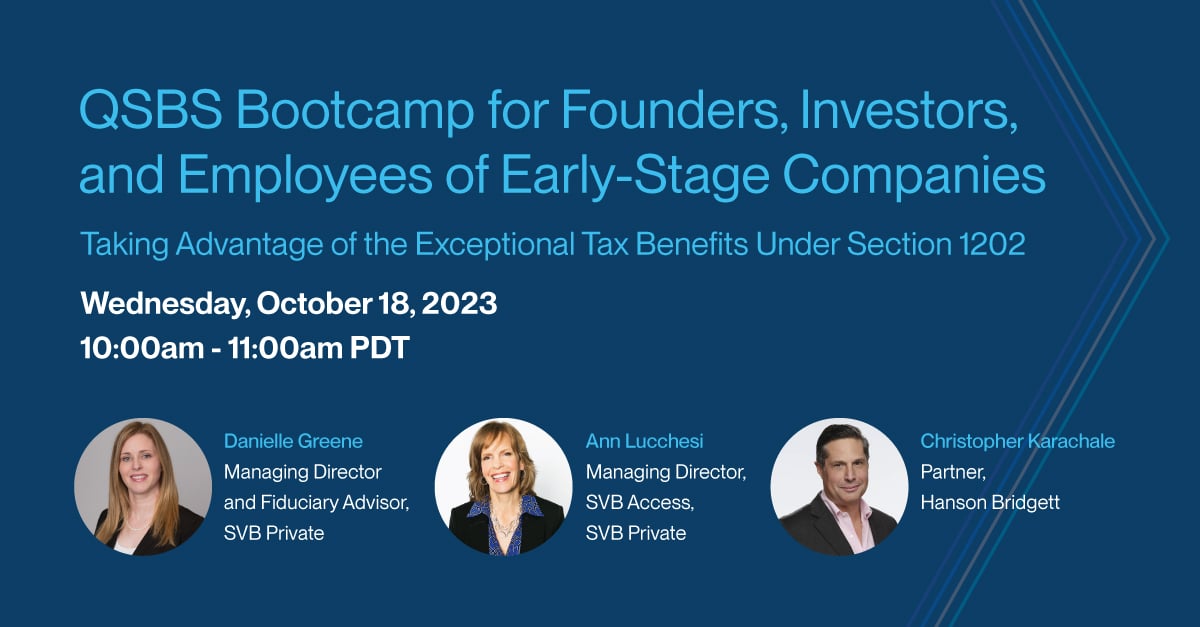We’re pleased to provide you with insights like these from Boston Private. Boston Private is now an SVB company. Together we’re well positioned to offer you the service, understanding, guidance and solutions to help you discover opportunities and build wealth – now and in the future.
Why a trusted advisor can help you avoid pitfalls and feel empowered to sell your stock
After spending decades of your life focused on your career and your family — perhaps at the expense of refining your investment portfolio — you may have been relying on your company shares to fund your retirement. But it's time to rethink that strategy. A balanced portfolio is essential to maximizing your returns — and the biggest obstacle to those earnings is emotional investing.
When you're intently involved in your company's growth, there aren't always opportunities to revisit your investment strategies. However, taking an active role in managing your financial future will help you avoid missteps such as putting too much weight into one asset, which is a real risk for executives.
The longer you're with an organization, the harder it becomes to evaluate your shares objectively. That's how emotional investing happens, making you reluctant to recognize that it's time to sell, or causing you to overvalue the business's contribution to your portfolio. Impulsive decisions often lead to regret, which is why you want to take a dispassionate view of your current investment in your company. If you feel a sense of urgency to act or struggle to discern the next best steps toward your goals, contact your trusted financial advisor and ask for their input. They can provide an outside perspective with full knowledge of how your company shares will influence your overall financial position, and their counsel can help you create the best strategy for you and your family.
Here are some additional ways to take the emotion out of investing.
Diversify your portfolio
By not appropriately allocating your portfolio components, you're at risk for real losses. However well the company is performing now, you can't know what lies ahead. Economic downturns and unexpected market shifts could slow the company's growth or negatively impact its value. If that happens, you risk taking a loss because you've staked too much on the business.
One rule of thumb to consider is ensuring that no more than 5 percent of your portfolio is tied to one stock holding. But you'll want to discuss this issue with your financial advisor. They can guide you through the right strategy for your particular circumstances and help you mitigate risk if you've over-invested in your company.
Consider the compliance rules
In order to stay on the right side of insider trading regulations, you must follow strict guidelines about disclosing information that influences your decision to sell your shares and when. Under the Security and Exchange Commission's Rule 10b5-1, there are strict stipulations regarding how material, non-public information (MNPI) is used in sales and trades. Therefore, you need to work closely with your financial advisor and legal team to ensure that any decisions you make regarding your company stock are in full compliance with these standards.
Evaluate your tax strategies
Be strategic when selling your stock. If you have non-qualified stock options (NSOs), your advisor can help you decide when to exercise them to maximize your tax benefit and potentially take advantage of lower capital gains rates once you sell. On the other hand, if you have incentive stock options (ISOs), you'll need to strategize differently since those must be reported as part of your alternative minimum tax (AMT) obligations. Because of the nuances of tax laws surrounding stocks, you'll likely want to consult with an advisor.
Check advisors for conflicts of interest
It's critical that you feel confident when working with your advisor. If the same company that advises you also manages your stock plan, there's an incentive to guide you toward decisions that benefit the firm. Ensure that your advisor is focused entirely on making decisions that are right for your goals and circumstances.
Emotional investing is a human impulse, but it can lead otherwise savvy investors to unnecessary losses. Partner with a trusted advisor to make informed choices about your company shares that support your long-term financial well-being.














